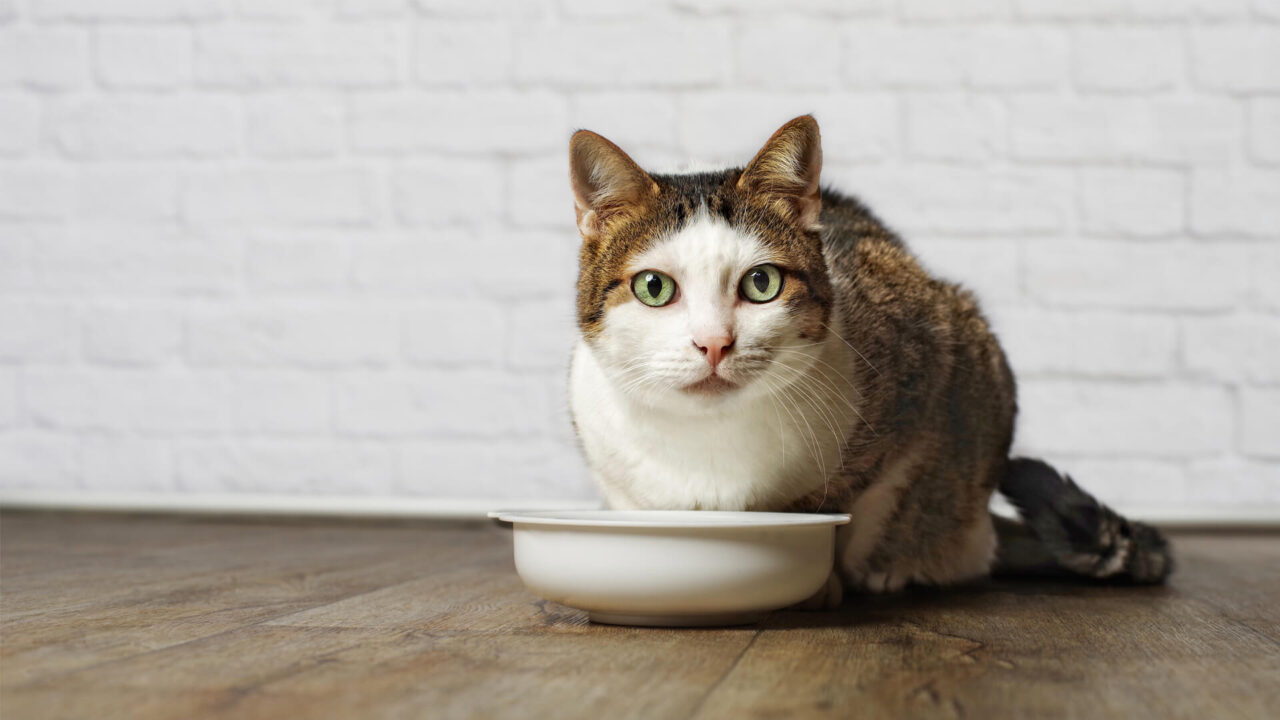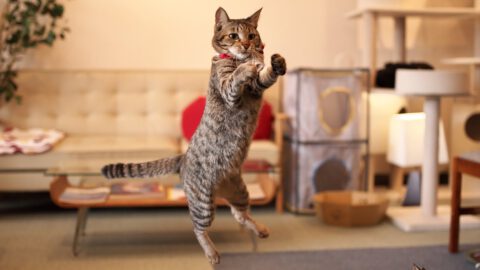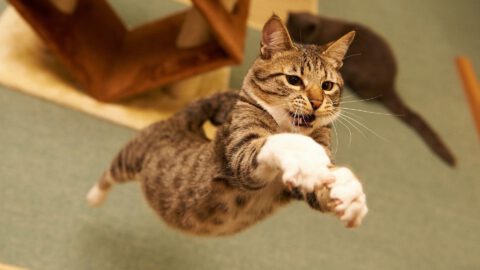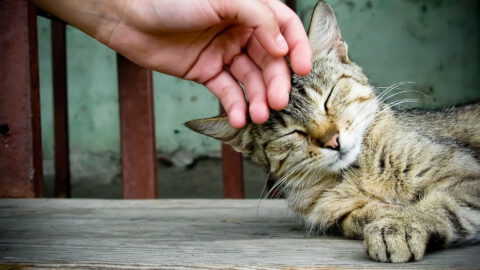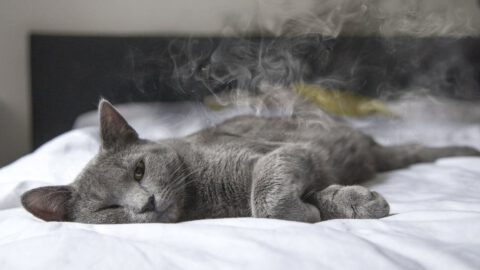Last Updated on February 14, 2021
A cat may stop eating for several reasons. Sometimes the reasons aren’t always clear and you may start to worry when your cat won’t eat their favorite food. We will address common reasons why a cat may not want to eat and what you can do to encourage them to start eating again.
Why a Cat May Stop Eating
It is not unheard of for a cat to suddenly be put off from its food. There are many reasons why a cat may stop eating and it is not always clear why. Becoming concerned and worried is totally understandable which is why it is important to figure out the cause sooner rather than later. It may be down to a simple cold, stress, behavioral issues, or a medical condition. It is important that, whatever the cause, they be taken into their veterinarian to evaluate the situation and make sure nothing serious is going on. Here are the most common reasons a cat can lose its appetite:
Loss of Smell
When a cat loses their sense of smell, this directly impacts their appetite. A big portion of a cat’s appetite comes from their sense of smell which encourages stomach bile to be produced in the anticipation of food. When they can’t smell properly or at all, they are less likely to feel hungry and less likely to take food. Upper respiratory infections, airborne allergies, and a sinus infection can greatly impair their ability to smell their food.
Behavioral Issues
A cat who has recently been put under stress, has issues with depression, or has a history of being picky will all hinder a cat’s willingness to eat. In order to remedy any of these issues, you will have to remove the stressor and try new foods to find something they will enjoy more. Mealtime is a happy time for cats so finding good food they really enjoy will help reduce stress in and of itself.
New Medication or Recent Vaccination
Most medications and vaccinations are not free from side-effects. In fact, one of the most common side-effects of general medication and vaccines deal directly with the stomach. They can cause upset stomach, nausea, gas, constipation, diarrhea, and just a general loss of appetite. It is important to bring this up with your vet if you notice any changes in your cat’s behavior be it with food or otherwise to ensure they are not having any other reactions.
Other Medical Issues
Loss of appetite can be brought on by medical issues like tooth infection, pancreatitis, a UTI or bladder stones, certain parasites, or general pain from something like arthritis. It is important that your cat be seen by a veterinarian for a proper check-up to rule out any serious issues taking place in your cat’s body.
How to Encourage Your Cat to Eat
There are some things you can try to help get your cat more interested in eating. It is always important that your cat is seen by a veterinarian if your cat has refused to eat any food in over 48 hours if you do not know the direct cause. If they are not drinking anything either, they should be taken into an emergency clinic right away.
5 Things To Try If Your Cat Isn’t Eating
I know this sounds like a no brainer, but sometimes this is all it takes. All cats should be on some form of wet food in their daily diet. You can do a 50/50 diet where 50% is wet and 50% is dry but you do not want to only feed your cat dry as this increases the chances of medical conditions to form such as bladder stones, tooth rot, and diabetes. So if your cat is not eating any wet at all, now is the time to change things up. For the cats who are already on a wet food diet, try a new brand or flavor of food.
Canned kitten food not only has more fat and general nutrition, but it tends to smell a lot stronger to cats as well. A cat who is snubbing its food will almost always eat wet kitten food. You can opt to feed your cat kitten food for up to a week or until they are accepting their standard diet again.
Not many people think to do this but warming your cat’s meal up is a good way to increase the smell and flavor. You can do this by running their plate or bowl under hot water and then spooning the food in and mixing it or you can microwave their food on a glass plate for 5-second intervals until it is warm but not hot.
This sounds like a weird suggestion but it can make a difference for a cat not wanting to eat. If you do want to try this option, be sure to only stick to the baby food varieties that are just chicken or turkey. At most, there should only be 3 ingredients (meat, cornstarch, water). Be sure to check the ingredients on the back of the jar before feeding it to your cat.
Bone broth is a great option for cats who are still willing to drink. It will supply a good amount of minerals and vitamins while keeping them hydrated. It is best to either buy the kind specifically marketed for pets or make it yourself as most prepackaged bone broth for human consumption contains onions and garlic which can be toxic to cats. You can also use bone broth as a topper for food to make it more flavorful.
What if none of this works?
If none of the suggestions above have worked, there is likely a more serious reason behind their loss of appetite and it is imperative you work with a vet to figure out what is causing the issue. Vets can prescribe food paste supplements you can offer your cat until they are eating again. They may also require fluids if they have become dehydrated.
